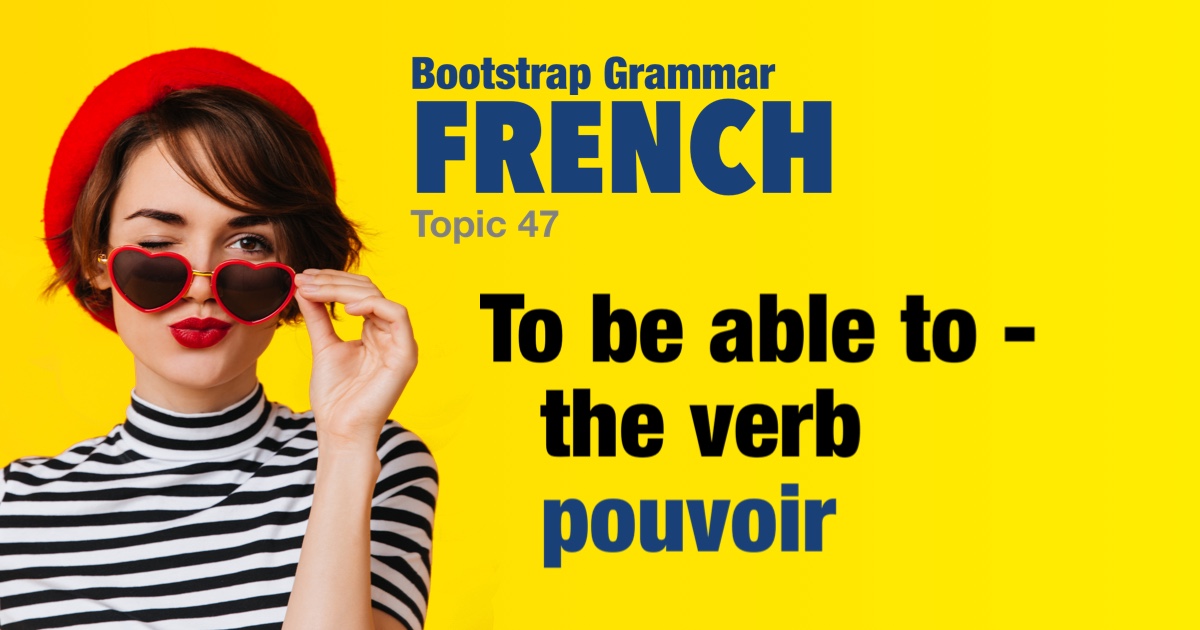French grammar - To be able to - the verb pouvoir |
|||
|
|||
The verb pouvoir means 'to be able to'. The meaning is both 'to be capable of' and also 'to have permission to' or 'to be allowed to'. It is a highly irregular verb. Its present tense conjugations are as follows: • je peux - 'I can' • tu peux - 'you (familiar) can' • il & elle peut - 'he/she can' • nous pouvons - 'we can' • vous pouvez - 'you (plural) can' & 'you (formal) can' • ils & elles peuvent - 'they can' Pouvoir is another French verb that can be an auxiliary followed by a second verb in its infinitive. |
| Examples: | |
|
je peux
I can |
|
|
tu peux
you (familiar) can |
|
|
il peut
he can |
|
|
elle ne peut pas
she can not |
|
|
nous pouvons
we can |
|
|
vous pouvez
you (formal) can |
|
|
ils ne peuvent pas
they (males) can not |
|
|
elles peuvent
they (females) can |
|
|
Il peut aller à l'école.
He can go to school. |
|
|
Je peux voir un oiseau vert sur le toit.
I can see a green bird on the roof.
|
|
|
Où pouvons-nous aller cet après-midi ?
Where can we go this afternoon? |
|
|
Pouvez-vous voir le cerf-volant dans l'arbre ?
Can you (formal) see the kite in the tree?
|
|
|
Peut-elle faire le lit ?
Can she make the bed? |
|
|
Qu'est-ce que nous pouvons faire à la maison ?
What can we do at home? |
|
|
Que pouvez-vous voir dans le trou ?
What can you (formal) see in the hole? |
|
|
Je peux voir une grosse araignée noire dans le trou.
I can see a big black spider in the hole. |
|
|
Ne pouvez-vous pas voir l'horloge d'ici ?
Can you (formal) not see the clock from here? |
|
|
Pouvons-nous avoir ceux-là dans la vitrine ?
Can we have those ones in the shop window? |
|
|
Pouvez-vous être à la maison ce soir ?
Can you (formal) be at home this evening? |
|
|
Qui peut venir à la fête demain soir ?
Who can come to the party tomorrow evening? |
|
|
Peuvent-ils revenir ?
Can they come again? |
|
|
Je ne peux pas voir les journaux sur l'étagère.
I cannot see the newspapers on the shelf. |
|
 |
|



